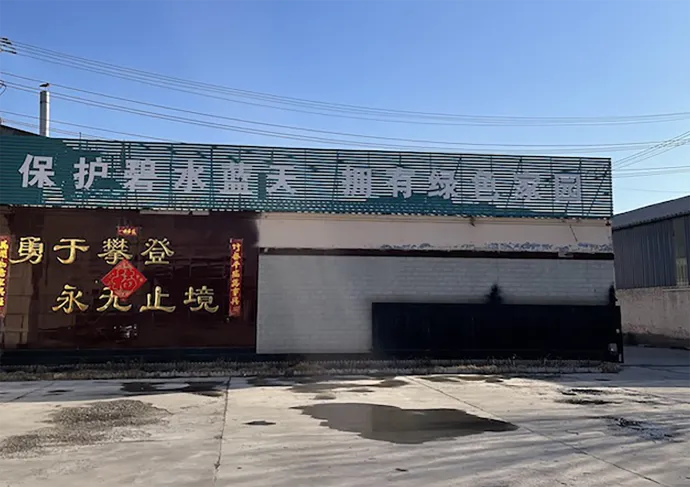Nov . 21, 2024 14:51 Back to list
mineral fiber board
Understanding Mineral Fiber Board Composition, Benefits, and Applications
Mineral fiber board is a versatile and widely used building material, renowned for its exceptional properties, such as fire resistance, sound insulation, and thermal performance. Composed mainly of mineral fibers like rock wool or glass wool, this board finds prominent use in various sectors, including construction, industrial applications, and insulation.
Composition and Manufacturing
Mineral fiber boards are primarily made from natural minerals, predominantly basalt rock or recycled glass, which are melted and spun into fibers. This process helps in achieving a lightweight yet dense product that is highly efficient for various applications. The boards are typically produced in different densities and thicknesses, catering to a range of performance requirements.
The production process involves several stages
1. Raw Material Preparation The raw materials, such as rocks or glass, are crushed and heated to high temperatures, allowing them to melt. 2. Fiberizing The molten material is then spun into fibers, creating a mat-like structure.
3. Binding and Forming The fibers are combined with binders and formed into continuous sheets or boards under heat and pressure.
4. Curing The boards undergo a curing stage where binders harden, providing additional strength to the final product.
5. Finishing Once cured, the boards may be cut to size and finished with different coatings or surfaces, depending on the desired application.
Benefits of Mineral Fiber Board
Mineral fiber boards offer a wide range of advantages that make them a preferred choice in many scenarios
1. Fire Resistance One of the most significant properties of mineral fiber boards is their innate fire resistance. They can withstand high temperatures and do not emit toxic fumes when exposed to fire, making them ideal for use in commercial and industrial buildings.
mineral fiber board

2. Sound Insulation These boards have excellent acoustic properties, significantly reducing sound transmission between spaces. This capability is particularly advantageous in environments where noise control is vital, such as offices, recording studios, or residential buildings.
3. Thermal Insulation Mineral fiber boards provide good thermal insulation, helping to reduce energy costs by maintaining stable indoor temperatures. They can be effectively used in walls, ceilings, and floors, making them ideal for energy-efficient building designs.
4. Moisture Resistance Many mineral fiber boards are treated to resist moisture, preventing mold and mildew growth, which is essential for maintaining indoor air quality.
5. Sustainability The raw materials used in mineral fiber board production are often sourced from recycled content, contributing to lower environmental impact. Additionally, these boards are typically recyclable at the end of their life cycle.
Applications
Due to their diverse attributes, mineral fiber boards are employed in a variety of applications
- Commercial Construction Used extensively in office buildings, schools, and hospitals for ceilings, walls, and partitions due to their fire resistance and acoustic properties. - Industrial Settings Suitable for factories and manufacturing plants where high-temperature processes occur, providing excellent insulation and fire safety.
- Residential Use Home builders utilize mineral fiber boards to enhance energy efficiency and provide soundproofing in multi-family dwellings.
- HVAC Systems Often used in duct insulation, mineral fiber boards can improve the efficiency of heating, ventilation, and air conditioning systems by minimizing thermal losses.
Conclusion
In conclusion, mineral fiber board is a multifaceted building material that plays a crucial role in modern construction and insulation. Its performance characteristics, including fire resistance, sound insulation, and thermal efficiency, make it an indispensable component of various building projects. As sustainability becomes increasingly important in the construction industry, the value of mineral fiber boards, with their ability to contribute to energy-efficient designs, is likely to grow. Whether in commercial, industrial, or residential settings, mineral fiber boards represent a smart choice for builders and architects looking to meet today's demanding standards.
-
Quality Ceiling Trap Doors & Access Panels | Easy & Secure AccessNewsAug.30,2025
-
Durable Ceiling T Grid Systems | Easy InstallationNewsAug.29,2025
-
PVC Gypsum Ceiling: Durable, Laminated Tiles for Modern SpacesNewsAug.28,2025
-
Pvc Gypsum Ceiling Is DurableNewsAug.21,2025
-
Mineral Fiber Board Is DurableNewsAug.21,2025
-
Ceiling Tile Clip Reusable DesignNewsAug.21,2025







